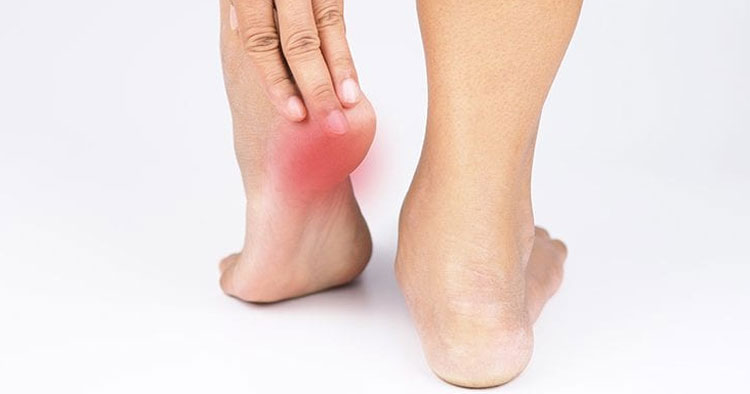Misconceptions About Heel Pain
Here at The Movement Centre, heel pain is one of the most common forms of foot pain our physios and podiatrists will come across, with plantar fasciitis being the most common cause of heel pain. If you’ve experienced heel pain before, you’ll know how debilitating it can be if it isn’t appropriately managed! Like many things in this day and age, there are a number of myths and misconceptions surrounding the topic of heel pain. In this blog I will explain common misinformation you may find on the internet, and instead give you some proper advice to get you back on your feet in no time!
1. You can’t exercise if you have heel pain
While you should often avoid high impact sports if you are suffering from heel pain, maintaining your walking/ running/ cycling/ gym routine can be helpful! As long as you are being
sensible and not pushing through pain, exercising can be important for keeping the conditioning of your muscles and tendons.
2. Heel spurs are the cause of heel pain
Heel spurs can be related to both heel pain and
plantar fasciitis, but is often not the cause of symptoms in your feet.
Heel spurs are a bony reaction due to long term pulling and straining of the tendons that attach to the proximal heel, most notably the plantar fascia. So in many people, a heel spur can be a sign of long term plantar fasciitis!
Funnily enough, around 10% of the Australian population have a bony heel spur and don’t even realise it. As podiatrists we don’t look at heel spurs as the problem, moreso the surrounding soft tissue.
3. It only occurs due to flat feet.
Based on current evidence, we know there is some link between
collapsed arches and plantar fasciitis, although it certainly isn’t the only foot type linked to heel pain.
Heel pain may also occur to those with stiff, high arched feet. These foot types are unable to disperse ground reaction forces as well as a more mobile foot, and thus are more likely to experience heel pain.
As well as foot types, heel pain is largely linked to environmental causes, such as what shoes you wear, how much you exercise, changes in activity and previous injury history. These will come into consideration when discussing a treatment plan!
4. The pain is caused by too much exercise
Heel pain affects a wide range of people: from elite athletes and exercise enthusiasts to those who are mostly sedentary. While exercise can be a factor, it isn’t purely from doing ‘too much’.
More accurately, you’ll find that heel pain can be due to a CHANGE in activity. All muscles, tendons and ligaments in the body are adaptable, and over time will get used to your regular exercise routine. It’s only when we make large changes and overuse our muscles (such as increasing your running from twice per week to five times per week) that we may exceed the tissue’s capacity, eventually causing an injury.
To manage this appropriately. start your exercise routine at a level you know is comfortable for your body. Slowly increase this every week over the following months and your body will have enough time to adapt to your level of activity!
5. You can manage heel pain by stopping all activity
Resting your feet during the early stages of an injury can be helpful for reducing pain and inflammation, although for long term heel pain and plantar fasciitis it can actually be a detriment!
Maintaining your exercise routine with incorporated strength and conditioning work has been shown to improve recovery rates and reduce painful flare ups.
If you or someone you know has been struggling with heel pain, book in with The Movement Centre today. There are many myths and misconceptions regarding heel pain and our podiatry team would be glad to answer your questions and guide you through the recovery process



